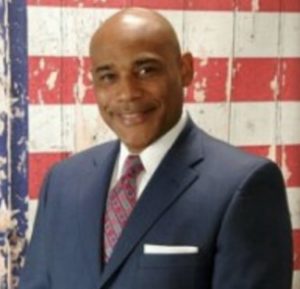
06 Feb 2023 Derrick Hollie: Preventing Energy Poverty
Due to an unwelcome rise in energy prices this winter season, the average U.S. household expenditures are expected to increase by 28% for natural gas, 27% for heating oil, 10% for electricity and 5% for propane. The U.S. Energy Information Administration’s Winter Fuels Outlook and non-profit data center USA Facts both project the second largest year-over-year increase per household energy costs in the last eight years, making it harder or next to impossible for families to make ends meet. All this leads to a widening of energy poverty in America. This is an emergency we must address immediately.
Energy poverty occurs when individuals and families are unable to afford basic heating electricity and gas needs. High costs and the lack of energy services negatively impact a household’s well-being and limit economic opportunities. Vulnerable populations such as low-income, minority, rural, elderly, and native American communities are often disproportionately affected by energy poverty. These inflationary pressures and the terrible consequences aren’t the result of a free market at work, but overzealous policy pushed by Democrats in Washington and radical left energy policy. Tragically, the pause on new oil and gas leases on Federal land along with an aggressive green agenda by the Biden Administration has many Americans experiencing energy poverty for the first time.
Eliminating energy poverty is a goal we all are interested in achieving, however in working towards that goal, we need to be mindful of how energy policies will impact the vulnerable communities we are trying to protect. The attack on the oil and gas industry is being done under the guise of environmental justice, the fair treatment and meaningful involvement of all people regardless of race, color, national origin, or income. On the surface environmental justice sounds great, however it has been weaponized against the fossil fuel industry at the expense of the same vulnerable communities “environmental justice” claims to protect.
When the government creates policy, its priority should be the welfare of the people, especially those impacted the hardest. Therefore, combating energy poverty should be a central pillar when Congressional leadership considers green energy policy or when agencies consider environmental regulations.
My passion for American energy is deeply rooted in my own story, stemming from my grandfather who was a black coal miner in Southwest Virginia and my time serving as a brakeman for Norfolk Southern Railways where we transported coal and other natural resources here and abroad. Ongoing efforts to combat energy poverty are vital and serious consideration should be given to the bill introduced by Congressman Hern (OK-1), H.R. 4266, ‘The Energy Poverty Prevention and Accountability Act’. This bill addresses energy poverty in at-risk communities, including low-income, minority, rural, elderly, or Native American, by formalizing how new energy policy would affect these groups and requiring agencies to publish reports on how vulnerable populations would be affected. By completing these studies, we will be one step closer to ensuring all Americans have access to affordable and reliable energy to maintain personal health and economic security.
I think we all would agree, American people have gone through enough and with the uncertainty that still exists from COVID-19 and a struggling U.S. economy, the last thing we need to do is take away good paying jobs, make it harder for families to heat their homes, disrupt lives, and destroy an industry that we have relied on for centuries. The oil and natural gas industry has allowed us to accelerate billions of people out of poverty, made America the worldwide economic leader, and brought the American dream closer to home for millions.
We need a market-oriented energy policy that will enable America to keep exploring and developing our own natural resources safely, push back against inflationary pressures on energy costs, and protect vulnerable communities from short sighted and radical policies that drive energy poverty. For my coal mining grandfather and millions of vulnerable Americans that struggle to make ends meet, I’ll keep fighting. I hope you’ll join me.
Project 21 Ambassador Derrick Hollie is President of Reaching America, an educational organization he developed to address complex social issues impacting vulnerable populations. This was first published at RealClearEnergy.




